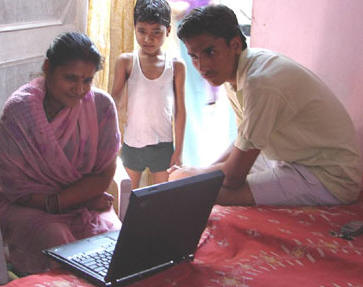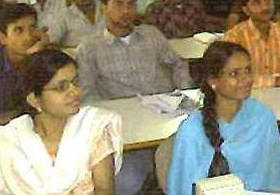In the
last one year, each of these products has undergone an iterative
development process that TARAhaat tailors to the specific nature of its
products. This process can probably be best explained with a diagram :
Given the broad scope of the EDS service and the diverse nature of its
individual components, the development process posed several challenges
for the team. The two major components of this service, the
Entrepreneurship Development Programme (EDP) and the Enterprise Packages
(EP), had distinct learnings and experiences to offer, some of which are
worth sharing.

While developing the EDP for instance, we very quickly realized that its curriculum
is very subjective and therefore would need to vary significantly in the
level of content, style of delivery and pedagogy across demographics –
the examples of technology-based enterprises failed to noticeably excite
the rural entrepreneurs who preferred the word vyavasaay, while
on the other hand the semi-rural entrepreneurs preferred the word
business and asked for more examples of technology-based
enterprises; the students from rural areas enjoyed the incorporation of
cartoon elements and easy pace of speech, while the semi-urban, educated
youth expressed boredom demanding a faster pace and more advanced
levels. A conscious effort had been made to keep the content free of
jargon and very practical, but some of the students wanted to learn
jargons, almost as if they wanted to show off their knowledge! As
expected of course, the motivation component had to be designed very
differently for men and women with the latter focusing more on work-life
balance and the social challenges that a woman could face and ways in
which she could deal with them.
From a marketing perspective, both financial linkages and the
opportunity to acquire a business sense have been the major draws.
Critical to building sustained partnerships with financial institutions
is a sound selection process that is slowly evolving as a result of
experiments with a variety of channels and methods during field testing.

For the Enterprise Packages, which provide training and support in
setting
up specific enterprises, Micro Concrete Roofing (MCR) tiles and
broiler-based poultry farming were selected for the pilot testing phase,
based on the criteria of sustainability at the local level, scalability
at the national level and replicability. A key lesson drawn in the
identification of potential entrepreneurs was to look at persons engaged
directly or indirectly in sectors allied to the selected enterprise. For
example, potential entrepreneurs were scouted from among wage labourers
working with stone-crushing units or cement-related works. Preliminary
results also strongly indicate that moving on to practical learning
sessions after going through the multi-media based training
programme reduces the manhours required in reaching a satisfactory level
of practical skill. The team is now looking out for suitable enterprises
for which multimedia based packages can be developed to increase the
portfolio of enterprise packages being offered as part of the EDS
service.
Currenty, most components of this service hve completed first levels of
iterative field testing and are in the process of being transferred to
an open, less-cotrolled environment. So far, encouraging successes have
been met in overcoming challenges that the field throws up, but several
remain to be conquered. However, we are positive that by the time the
next TARAhaat issue is ready to be published, the Enterprise Development
and Support Service will be a well-tested, integrated, comprehensive and
quality service up and running and we will have several more
experiences and learnings to share with you! q
Aditi Pany
apany@tarahaat.com
Back to Contents
.jpg)